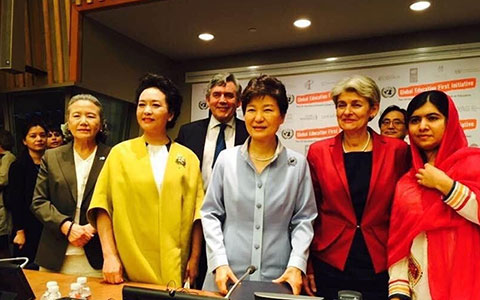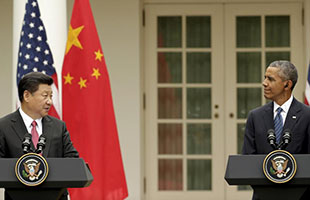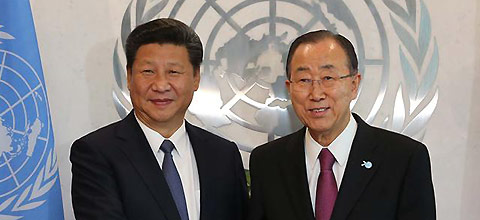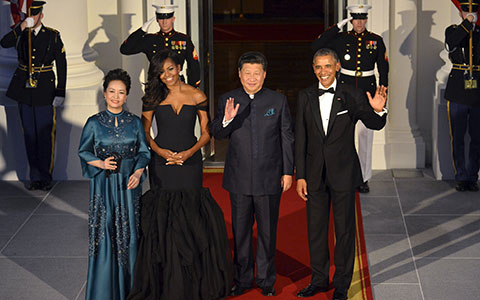‘Mr Sanction’: UN must be fair
Updated: 2015-09-28 04:30
By ZHOU WA(China Daily USA)
|
||||||||
If you had mentioned the name Wan Jinzhang to staff at the UN Security Council 10 years ago, few may have known who you meant. Instead, most knew him by his nickname, “Mr. Sanction.”
From 1992 to 2004, he was a political affairs officer responsible for implementing resolutions related to sanctions, mainly those against Libya and Iraq.
“It is not easy to deal with UN sanctions because you always have to make sure the sanctions are unconditionally executed, but at the same time do not directly affect innocent parties,” he said.
As an example, Wan used the plight of Libyan pilgrims in 1996.
That year, the UN Security Council placed flight restrictions on Libya, which resulted in thousands of Muslims being unable to fly to Saudi Arabia for their pilgrimage to Mecca. Due to the distance, it was not pragmatic to travel by land transportation.
“The UN originally did not intend to forbid regular religious activities by implementing its resolution, so a solution was needed to keep the flight restrictions in place while still guaranteeing Libyans could go on pilgrimage,” Wan said.
Libya applied to lift the sanction, he said, but it failed to win the backing of Western nations. Then, after negotiations among various parties, hope came in the shape of Egypt Air, which offered to provide charter flights for Libyan pilgrims.
The airline initially flew Wan from New York City to Tripoli, the Libyan capital, to mediate between UN organizations and the country’s foreign ministry. After the parties reached a consensus to allow only pilgrims on the flights and for the UN to supervise the entire process, Egypt Air was finally cleared to transport Libyans to Saudi Arabia.
Since then, the airline has chartered 40 to 50 flights a year, enabling roughly 6,000 Libyans to go on pilgrimage.
The former UN official said the episode was a good example of a “smart sanction,” one that does not negatively influence the legal rights of a nation’s people. “And the key to achieve this is to be neutral and fair.”
Wan, who retired upon leaving the UN, said he was the only Chinese in his international working group, which gave him “special advantages.”
When dealing with Libya or Iraq, he explained, Chinese officers are more easily trusted compared with those from Western countries such as the US, the UK, or France because China does not have interests in the Middle East, so it is easier for Chinese officers to act neutrally.
“If you always finish your UN mission in a fair way, people from different countries will trust you,” he added.
- Dogs surf in contest in California
- France launches air strikes against Islamic State in Syria
- LatAm experts praise Xi on yuan, globalization
- Women's rights are human rights, German chancellor says
- Hajj death toll rises to 769, Iran denounces 'crime'
- Russia's military build-up in Syria reinvigorates political solution
-
 China's first lady unveils stamp honoring disabled
China's first lady unveils stamp honoring disabled -
 Xi makes four-point proposal on promoting women's rights
Xi makes four-point proposal on promoting women's rights -
 China gifts the UN 'Zun of Peace' for 70th anniversary
China gifts the UN 'Zun of Peace' for 70th anniversary -
 Xi calls for equitable, open, all-round development
Xi calls for equitable, open, all-round development 
 First Lady Peng delivers speech in English at UN
First Lady Peng delivers speech in English at UN
 Three Xi-Obama meetings: From casual to black tie
Three Xi-Obama meetings: From casual to black tie
 Xi pledges $2 billion to help developing countries
Xi pledges $2 billion to help developing countries
 White House hosts state dinner for President Xi
White House hosts state dinner for President Xi
Most Viewed
Editor's Picks

|

|

|

|

|

|
Today's Top News
Xi pledges $2 billion to help developing countries
Young people from US look forward to Xi's state visit: Survey
US to accept more refugees than planned
Li calls on State-owned firms to tap more global markets
Apple's iOS App Store suffers first major attack
Japan enacts new security laws to overturn postwar pacifism
Court catalogs schools' violent crimes
'Beauty of Beijing's alleys akin to a wise, old person'
US Weekly

|

|








